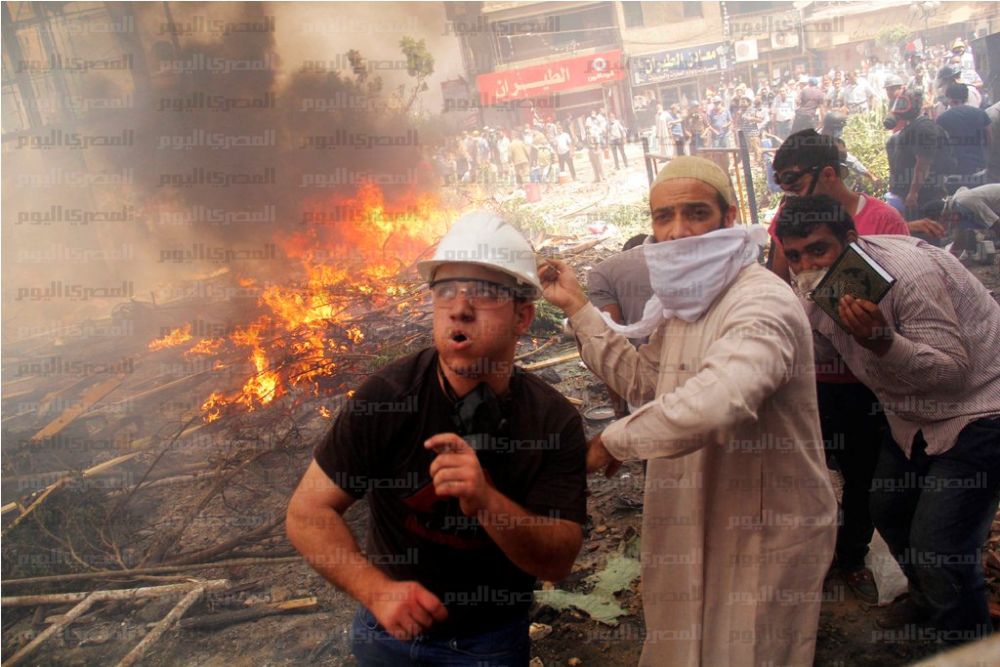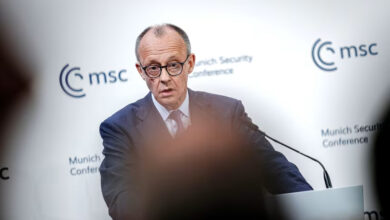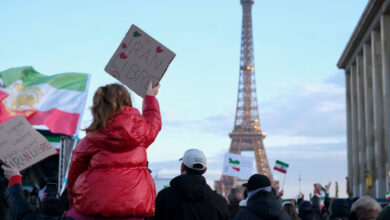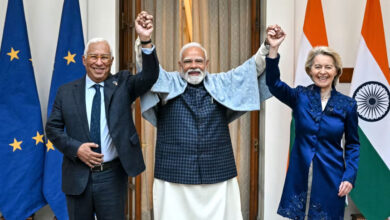
Bloody scenes
At least 300 people were killed in Cairo on Wednesday as violence broke out after Egyptian security forces moved in to disperse thousands of supporters of ousted President Mohamed Morsy who were protesting for weeks demanding his return in two major sqaures, Rabaa al-Adaweya and al-Nahda.
Security forces moved in on the early hours of Wednesday in an effort to clean two sit-ins in the Egyptian capital. In Nasr City, where thousands of protesters had been staging a 6-week protest, clashes erupted as demonstrators remained defiant.
Police shot and fired tear gas, birdshot and live ammunition at protesters, who responded by throwing rocks.
Sources from inside the Muslim Brotherhood like Mahmoud Shaaban, Muslim Brotherhood affiliated journalist, however, told Egypt Independent that after the security forces stormed the sit-ins and killed dozens of protesters, armed members from the sit-in started firing with their “automatic gun” at “police snipers stationed above buildings overlooking Rabaa”.
Clashes left hundreds of wounded protesters who were taken to Rabaa al-Adawyea mosque, as well as nearby hosptials like Ain Shams University Hospital where doctors told Egypt Independent reporters that most of the admitted cases were due to live ammunition and explosive bullets. Meanwhile, Egypt Independent reporters counted 30 corpses early in the afternoon at Rabaa al-Adaweya mosque alone.
Eyewitnesses confirmed that security forces were firing against protesters from nearby rooftops and television pictures showed snipers acting on the top of buildings.
Interior Ministery alleged that these snipers were members or “sympathizers” with the Brotherhood.
Dead daughter, journalists
Among the dead in Nasr City was the daughter of the Muslim Brotherhood leader Mohamed al-Beltagy, a British journalist working for Sky News and another for Xpress news, sister publication of Gulf News.
At al-Nahda square, in Giza, the site of the other major pro-Morsy protest, demonstrators were dispersed quickly early in the morning, with no reports of major casualties.
The Health Ministry said at least 247 people were killed in both camps and more than 2000 injured, but Muslim Brotherhood leaders say the toll was much higher, with a spokesman telling Egypt Independent that the number could possibly exceed 600.
The military-backed interim government had vowed to disperse the vigils, saying they were a “threat to national security” and threatened to use force, but demonstrators refused to leave.
Violence spread to other cities and the interim government announced a 30-day state of emergency, giving security forces more power to arrest people without warrants. A curfew was also implemented in many Egyptian regions from 9 p.m. until 6 a.m.
Interior Minister’s inadvertent references
During a press conference, Interior Minister Mohamed Ibrahim spoke to journalists and addressed the complaints of many Egyptians who are tired of the insecurity that has blighted the country since Mubarak was toppled in 2011. He inadverently evoked the days of the deposed autocrat as a model for the future. "I promise that as soon as conditions stabilize and the Egyptian street stabilizes, as soon as possible, security will be restored to this nation as if it was before 25 January, and more," he said.
Sectarian violence
Violence was also reported in the cities of Alexandria, Beni Suef, Fayoum, Minya and Suez, as government buildings and churches became the target of attacks, but there was no official confirmation on the exact number of casualties.
Around 45 incidents of churches being burnt or surrounded and nuns attacked were reported in Cairo (St. Fatima Basilica), Alexandria (Father Maximus Church), Arish (St. George Church), Assiut (8 churches), Beni Suef (2 churches), Fayoum (6 churches), Gharbiya, Giza, Minya (12 churches), Qena, Sohag and Suez.
In an interview with Al-Hayah Egyptian TV channel, a church representative said that police and army forces were absent in Minya. The church asked for security reinforcements as violence was expected to erupt, but the security systems did not provide the necessary, according to the source.
Local Minya residents, however, told Egypt Independent that Muslim Brotherhood members and members of Islamist extremist groups are known by name in Minya and could not be mistaken. Ahmed Wadea, the resident, told us that everyone knew the perpetrators and “they were Muslim Brotherhood members aided by members of extremists groups.”
In Fayoum, at least 17 people were killed after clashes between security forces and Morsy supporters at police stations, a hospital official said. In Suez, at least five people died when demonstrators tried to storm a government building. Reports of attempts to break into at least 20 more police stations in Egypt run rampant and Interior Ministry claims at least 60 of its staff were killed in the process.
As injuries and deaths reached a new high at Rabaa and al-Nahda sit-in, pro-Morsy protesters decided on a new venue for their sit-in; Mostafa Mahmoud Square in down town Cairo.
Interior Minister vowed that “Egypt will not allow any other sit-in, no matter what the price of dispersal is”.
Clashes broke out at the Mostafa Mahmoud Square as police used force to avoid a gathering of Morsy supporters. Elsewhere in the city, small marches were staged in the afternoon as shops were closed in various neighborhoods and residents avoided going to the streets fearing widespread violence.
Government divisions
Vice President Mohamed ElBaradie announced his resignation saying that “[he] can no longer bear responsibility for decisions that [he does not] agree with, and whose repercussions he dreads. [He] cannot be responsible for a single drop of blood before God, [his] conscience, and [his] people, especially that [he] believes the dropping of that blood could have been avoided.”
ElBaradie’s resignation sparked mixed reaction among Egyptian youth and political elite alike. Tamarrod (Rebel) movement accused ElBaradie of “quitting at a historic moment”.
Meanwhile, Ahmed Al-Tayyib, Al-Azhar Grand Sheikh, like ElBaradie Said that he was not informed of the dispersal and did not know anything about the decision. He added that he knew from the television what happened.
Foreign reactions
Many countries condemned the use of violence in Egypt, asking to halt the bloodshed. Qatar and Turkey condemned what they described as "excessive use of violence" and "clamp down on freedoms."
Qatar's State news agency QNA quoted a foreign ministry official as urging Egyptian authorities to "refrain from the security option in dealing with peaceful protests, and to preserve the lives of Egyptians at protest sites."
Turkey's President Abdullah Gul said on Wednesday an armed intervention by Egyptian security forces against protesters in Cairo supporting ousted president Mohamed Morsy was "completely unacceptable".
"Armed intervention on civilians, on people demonstrating … This is completely unacceptable," Gul told reporters in the capital Ankara.
EU envoy Bernardino Leon, who co-led the mediation effort with U.S. Deputy Secretary of State William Burns blamed Egypt's military saying that, "[EU] had a political plan that was on the table, that had been accepted by the other side [the Muslim Brotherhood]."
"They could have taken this option. So all that has happened today was unnecessary," Leon told Reuters in a telephone interview. The last plea was conveyed to the Egyptian authorities on Tuesday, hours before the crackdown was unleashed.
The U.S. on a similar token announced that is currently weighing calling off military exercise with Egypt.




